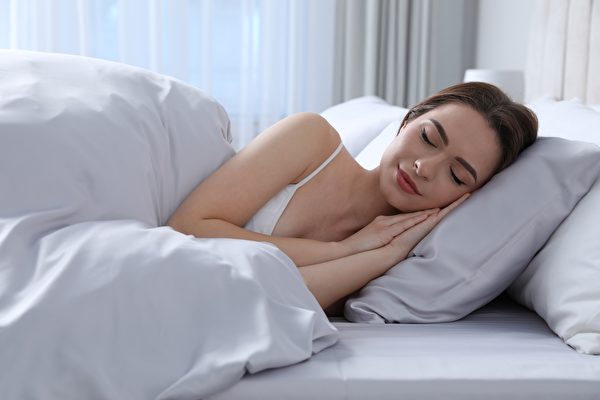According to a report by Chen Juncun from Epoch Times on July 23, 2025, it is said that women require more sleep than men and tend to sleep longer. Is this claim true? Let’s delve into expert opinions on this matter.
Amelia Scott, a clinical psychologist at the Woolcock Institute of Medical Research in Australia and a researcher at Macquarie University, discussed on The Conversation website that this is a complex issue that combines biology, psychology, and social expectations, and it also depends on how sleep is measured.
Scott pointed out that researchers typically measure sleep in two ways:
– By asking people about their sleep time (self-report), but individuals are often inaccurate in estimating their own sleep time.
– Using objective tools, such as research-grade wearable sleep trackers. These tools can record brain waves, breathing, and movements during sleep in laboratory or clinic-based sleep studies.
From objective data, rigorous studies often show that women sleep about 20 minutes more than men. A study involving approximately 70,000 individuals wearing wearable sleep trackers found consistent small differences between men and women across different age groups. For example, the sleep time difference between 40-44-year-old men and women is around 23-29 minutes.
The key findings lie in the significant variations in individuals’ sleep needs. The average sleep time for women may be slightly longer than that of men, similar to how their average height is slightly shorter than men’s. However, there is no universal standard for sleep time, just as there is no universal standard for height.
The claim that every woman needs an additional 20 minutes of sleep is incorrect. It is akin to suggesting that all women should be shorter than all men.
Even though women may sleep longer and deeper, their overall sleep quality tends to be poorer. They are also diagnosed with insomnia at a rate approximately 40% higher than men.
The mismatch between laboratory results and the real world is a well-known challenge in sleep research, with many studies failing to consider real-world factors that can impact sleep, such as mental health issues, medications, alcohol consumption, and hormonal fluctuations.
In response to this issue, Scott analyzed from biological, psychological, and social expectation perspectives.
From a physiological standpoint
, Scott mentioned that differences in sleep between the sexes begin to emerge around puberty. During pregnancy, postpartum, and the early stages of perimenopause, women experience sleep disturbances again. The secretion of female hormones, particularly estrogen and progesterone, seems to explain some of the differences in sleep between genders.
Certain health conditions can also affect women’s sleep health. For example, thyroid disorders and iron deficiency are more common in women, and these problems are closely linked to fatigue and sleep interruptions.
From a psychological perspective
, women are at a higher risk of depression, anxiety disorders, and trauma-related illnesses compared to men. These conditions are often accompanied by sleep issues and fatigue. Cognitive patterns such as anxiety and rumination are more common in women and can affect sleep.
Additionally, women are more likely to take antidepressant medications, which can impact sleep.
In terms of social expectations
, the burden of caregiving responsibilities still disproportionately falls on women. Data released by the Australian government this year revealed that women in the country spend an average of 9 additional hours per week on unpaid caregiving and work compared to men.
While many women try to carve out enough time for sleep, they often have limited opportunities to rest during the day. This places significant pressure on the sleep that could help them recharge.
Women in the early stages of perimenopause often juggle full-time work, caring for teenagers, looking after elderly parents, and dealing with possible nighttime hot flashes caused by hormonal fluctuations. Despite objectively having sufficient or even high-quality sleep, this does not necessarily mean they wake up feeling refreshed.
In conclusion, although research indicates that women may have longer and higher-quality sleep in laboratory settings, they face more obstacles in daily life that hinder them from getting sufficient rest.
So, do women need more sleep than men? On average, yes, they may need a bit more. But more importantly, women require more support and opportunities to recharge and recover their energy both during the day and at night.

